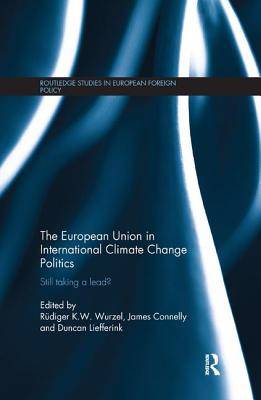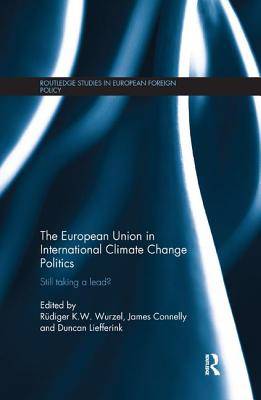
- Retrait gratuit dans votre magasin Club
- 7.000.000 titres dans notre catalogue
- Payer en toute sécurité
- Toujours un magasin près de chez vous
- Retrait gratuit dans votre magasin Club
- 7.000.000 titres dans notre catalogue
- Payer en toute sécurité
- Toujours un magasin près de chez vous
The European Union in International Climate Change Politics
Still Taking a Lead?
Description
In recent years climate change has emerged as an issue of central political importance while the EU has become a major player in international climate change politics. How can a 'leaderless Europe' offer leadership in international climate change politics - even in the wake of the UK's Brexit decision?
This book, which has been written by leading experts, offers a critical analysis of the EU leadership role in international climate change politics. It focuses on the main EU institutions, core EU member states and central societal actors (businesses and environmental NGOs). It also contains an external perspective of the EU's climate change leadership role with chapters on China, India and the USA as well as Norway. Four core themes addressed in the book are: leadership, multilevel and polycentric governance, policy instruments, and the green and low carbon economy. Fundamentally, it asks why we have EU institutional actors, why certain member states and particular societal actors tried to take on a leadership role in climate change politics and how, if at all, have they managed to achieve this?
This text will be of key interest to scholars, students and practitioners in EU studies and politics, international relations, comparative politics and environmental politics.
Spécifications
Parties prenantes
- Editeur:
Contenu
- Nombre de pages :
- 336
- Langue:
- Anglais
- Collection :
Caractéristiques
- EAN:
- 9781138361911
- Date de parution :
- 14-08-18
- Format:
- Livre broché
- Format numérique:
- Trade paperback (VS)
- Dimensions :
- 155 mm x 231 mm
- Poids :
- 439 g






